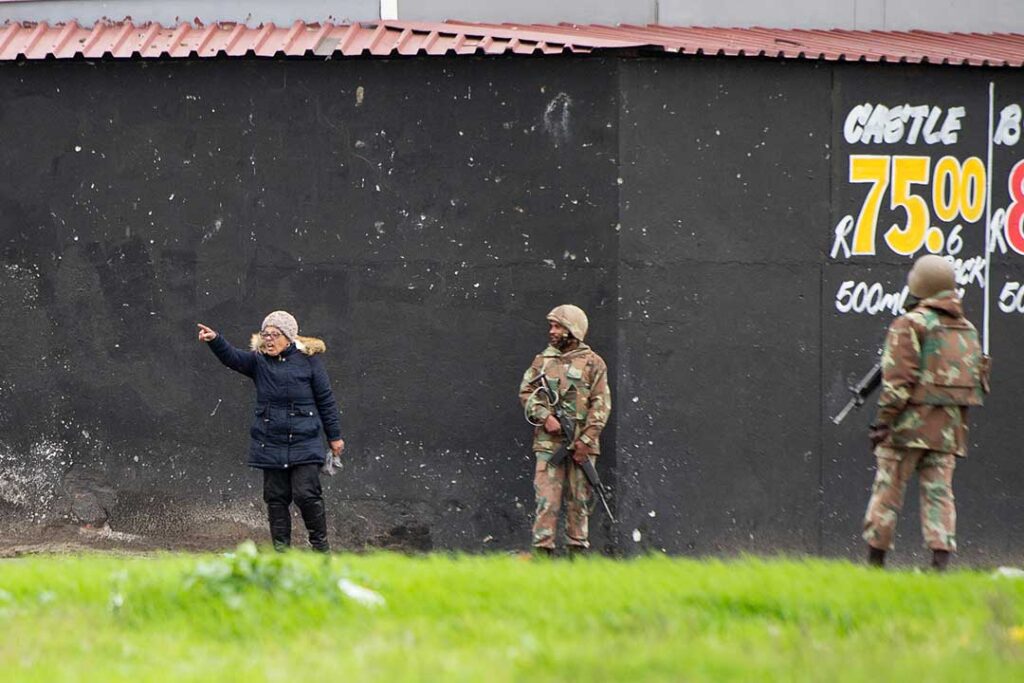Troublemaker-in-residence
What do you get when you mix weak governments and weak armies?
So this is my first column as Africa in Fact’s occasional Troublemaker-in-residence. Despite my provocative title, do not expect cynicism. As satisfying as snark may feel for the writer, it rarely prompts productive conversation. My intention is to cut through politics, propriety and political correctness to provoke authentic debate around Africa’s challenges. To challenge the status quo. And I do not believe we can do that without causing some trouble. So here we go. When the subject is security, you can almost predict the Troublemaker’s riff: African governments are too poor to afford standing armies. How can we argue for military spending in the context of millions of unemployed and undernourished, when too many mothers die in birth and not enough children attend school! (That’s my indignant shouting.) When an entire edition of Africa in Fact is focused on the failures and failings of some of Africa’s best-equipped armies, surely it is time to consider alternatives.
Now allow me to make a little more trouble by suggesting that most militaries across Africa are not merely a liability—a drain on the public purse—but are, themselves, a danger. Because Africa’s biggest threat comes from within: in the form of weak governments. When your enemy is within, an army is not going to help and there is too good a chance it might hurt. Now here is my first official Troublemaker pronouncement: weak governance is the single greatest impediment to Africa’s growth and the cause of its continued instability. You name it—acute crisis or gnawing challenge—the misuse or abuse of power fuels it. Ebola. Famine. Malaria. Inequality. Effective governments could not prevent these crises, but they should manage them before they become crippling. Weak governments, not weak armies, make African countries profoundly insecure. But it gets worse: the toxic combination of weak governments and weak armies is too often deadly.
History shows that a feckless military will likely serve as the strong arm of the Big Man or the scavengers feeding off the Big Man’s remains. Those weak militaries help create vacuums of power or greedily fill them. They are either pawns or predators in an authoritarian game of power where ordinary citizens are too often the losers. Burkina Faso is the latest depressing reminder of that reality. Weak governments also spot their enemies within: in the form of people with opinions or followers. Dissent, pluralism and intellectualism are the enemies of weak governments because they expose their cracks. Just last October the Sierra Leonean government used authoritarian legislation intended to manage Ebola to arrest a journalist critical of the government’s response to the pandemic. It leaves me wondering whom most Africans need protection from?
Africans, beware Big Men with access to big guns. If you dig too deep or talk too loud, those guns might aim at you. Now, in the spirit of constructive troublemaking, let me imagine a very different kind of military: standing “armies” of volunteers deployed swiftly and effectively in response to crises: floods in Mozambique or drought in the Horn. The kinds of crises where we normally wait for some equally feckless UN army to swoop in and provide “relief”. History has proven that it is usually a relief when the UN troops finally push off. When the responsibility for short-term relief and medium-term development sits firmly within capable African hands, the continent will have reached a critical milestone. Surely in the context of mass joblessness and frequent natural or man-made emergencies—predicted to increase as a result of climate change—there is a compelling case for a type of rapid response national guard or civilian corps whose job is to protect and rebuild.
Of course, again we would have to confront weak governance in the form of organising and managing the volunteers. In mid-November the Liberian government had not paid volunteer “contact tracers” a cent, despite their heroic efforts in finding Ebola patients. Still, imagine if those weak armies catalogued in this edition could be transformed into crisis response teams of pilots, medics, foot soldiers and engineers—not unlike existing armies but supporting developmental rather than political agendas. Imagine an army that re-built rather than destroyed; that preserved life rather than promised death. Now that would be a genuine contribution to the continent’s security.



